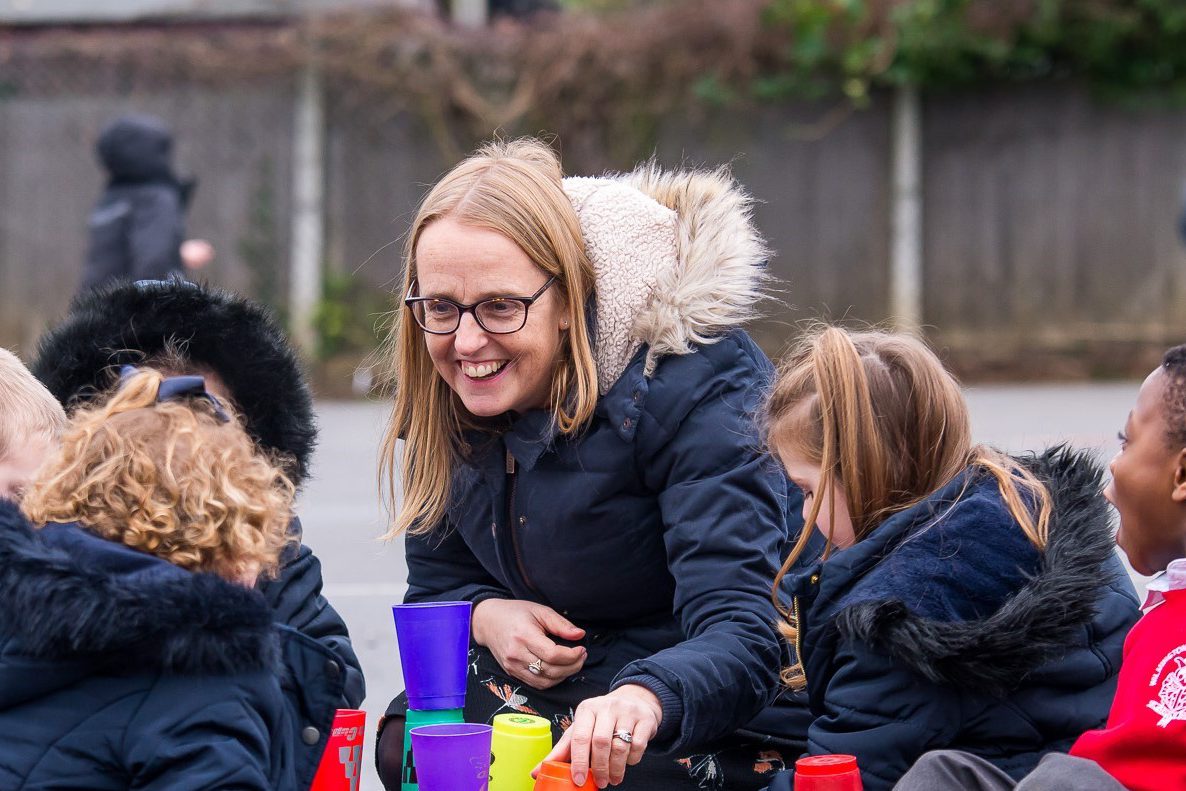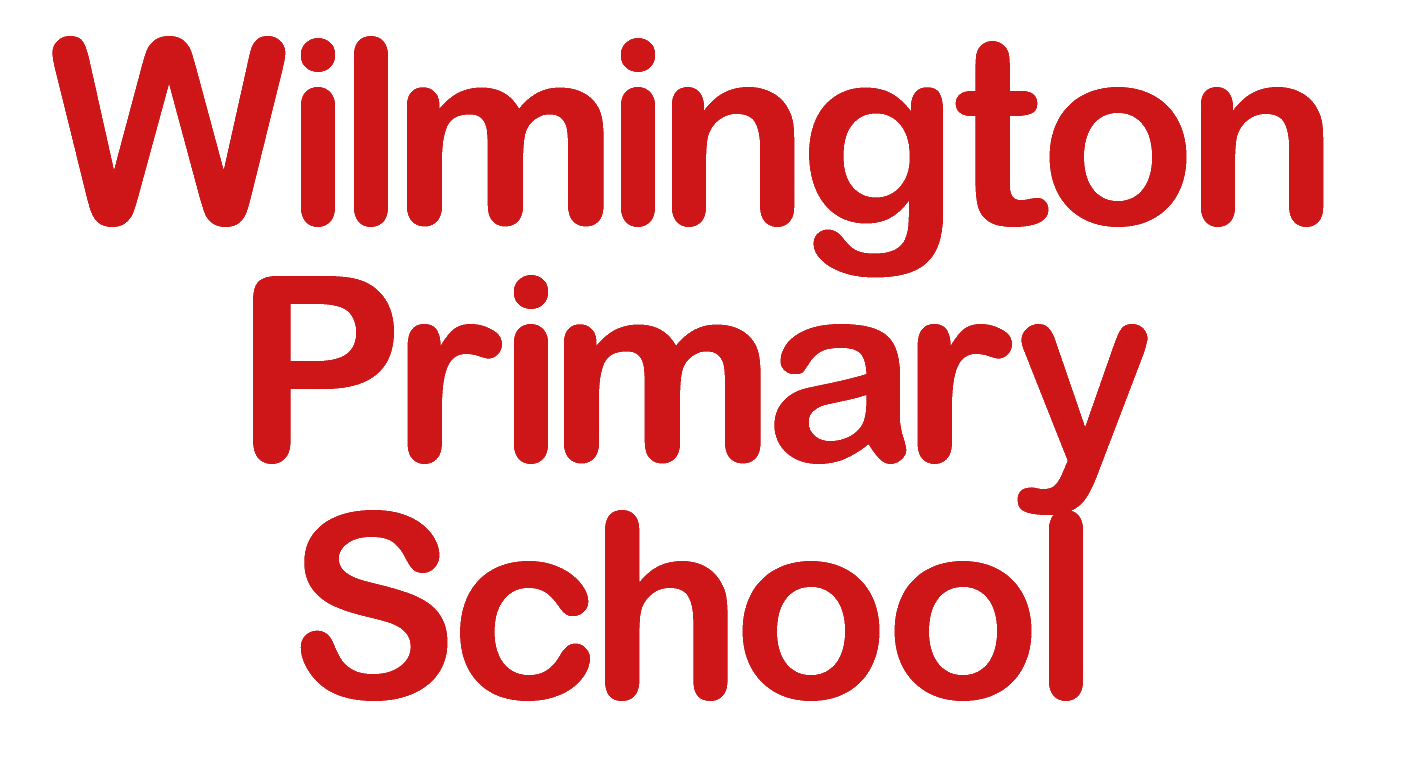Admissions
You are warmly invited to one of our Open Events to meet with our incredible pupils, teaching and support staff as well as explore our classrooms, facilities, and extensive school grounds.
“We pride ourselves on really knowing our pupils, encouraging individual talents and goals to achieve the best possible outcomes for all our children .. championing every success” Mr Curry, Headteacher
We accept children at any point during the school year, providing we have space available. If you have any queries regarding placing your child at our school, please contact us on 01322 274080 or admin@wilmingtonprimaryschool.co.uk.
If your child has any special educational needs then please let us know when you apply for a place. Once your child has been offered a plan then we will be able to plan a specialist transition if needed. For more information please see our inclusion tab and SEN policy.
Foundation Stage
Children start school in the September following their 4th birthday. The admissions round opens on 5th November 2024 for the following September and applications are made online at www.kent.gov.uk/ola. If you have any difficulty with the process, please do not hesitate to contact us as we will be happy to help with the application process. You should choose up to 3 schools in order of preference, and the Local Education Authority will advise you on Wednesday 16th April 2025 which school you have been allocated.
We hold new parent and carers tours in October, November, December and January to give prospective families an opportunity to view the school. Details of the tours can be found on our calendar or by calling the office. Please contact the school office with the date you would like to attend.
If your child is due to start Primary school in September 2025, you can appeal if you are refused a place at one of your preferred schools on National Offer Day (Wednesday, 16th April 2025). You needed to submit your appeal before 14th May 2025 for it to be considered July 2025. Any appeals received after this time will be heard within 40 school days from the deadline, or where reasonably possible in line with updated guidance from the Department for Education.
For late applications, appeals should be heard within 40 school days from the deadline for lodging appeals where possible, or within 30 school days of the appeal being lodged where reasonably possible in line with updated guidance from the Department for Education
Kent County Council’s admissions team can be contacted on 03000 416 789 for in-year places, or 03000 416 111 for entry to primary school.
For advice call 03000 41 21 21 or email kentonlineadmissions@kent.gov.uk.
For information about appealing for a primary school place, please click here where you will find information and documentation regarding the process.

In Year Admissions
We are currently holding a waiting list for all year groups. The waiting list is structured using our admission criteria.
If you would like to join the waiting list please complete an IYCAF (in year casual admission form) and send it to the school office. There is a copy in the documents below.
Once we have have responded to your IYCAF, if you would like to appeal for an in year place, please write to the school detailing reasons for your appeal. In year appeals will be heard 30 days after the appeal is lodged.
Our current admissions policy is below.
Inclusion
Wilmington Primary School is committed to providing an inclusive education for all children, regardless of ability, gender, language, ethnic or cultural origin. We work effectively with a wide variety of agencies and individuals to focus on improving outcomes for all children with Special Educational Needs.
What are special needs?
Special educational needs could mean that a child has:
● Learning difficulties – in acquiring basic skills in school
● Emotional and behavioural difficulties – making friends or relating to adults or behaving properly in school
● Specific learning difficulty – with reading, writing, number work or understanding information
● Sensory or physical needs – such as hearing or visual impairment, which might affect them in school
● Communication problems – in expressing themselves or understanding others
The school has a policy for Special Educational Needs (SEN) and follows the Code of Practice. When appropriate, referrals are made to specialist learning services and medical services. Any referral to an outside agency is undertaken with parental consent. Further details can be found in our SEN policy, which can be viewed here.
The staff work in partnership with parents/carers and pupils and liaise with external agencies to build upon pupil’s strengths and develop the individual. We promote equality of opportunity for people with disabilities: pupils, staff, parents, carers and other people who use the school.
We are committed to ensuring that pupils with disabilities can participate in the school curriculum, school trips and take an active role in all extra-curricular activities. The school environment includes designated parking and step free access to the school building. There are designated disabled toilets within the school and a dedicated medical room.
More able children, children who have English as an additional language and those on our pupil premium register are also recognised as having additional needs. There may also be stressful times such illness, bereavement and family breakdowns when families and children require support. We will support their learning and ensure they are fully included in all school activities.
We recognise that there are some pupils who may require additional resources or extra support at some time in their primary school life and we aim to cater for the needs of all pupils. Early identification of a child’s needs is made by close consultation with parents and pre-school settings from school entry. Individual pupils are monitored through teacher assessment, pupil progress meetings and provision mapping.
Equality and Diversity
At Wilmington Primary School we aim to create an inclusive culture for all staff, pupils, families and visitors to the school. We recognise respect and value people’s differences and ensure that individuals or groups of individuals are treated fairly and equally and no less favourably, specific to their needs, including areas of race, gender, disability, religion or belief, sexual orientation and age. We promote equality and diversity, treating all staff and students fairly, ensuring equal access to opportunities to enable children and staff to fully participate in the learning process and achieve and equip children and staff with the skills to challenge inequality and discrimination.
Objectives
● To promote a positive self-image in all children and to respect their individuality, providing for all pupils according to their needs
● To ensure equality of opportunity permeates the whole curriculum and ethos of the school
● In delivering the curriculum, ensure it contains non-stereotypical images in order to overcome preconceived ideas of gender, ethnic origin, culture or religion
● To include in resources: books, materials and equipment that are multicultural and non-sexist, providing positive images of all groups
● Ensure that the organisation of the school is sensitive to the needs of all
● To acknowledge the richness and diversity of British society and to help prepare children for their part in that society
● To develop a positive attitude to equal opportunity by all staff, parents, helpers, governors, children and all who participate in the school.
English as an Additional Language (EAL)
We celebrate the fact that some of our children speak more than one language. We carefully monitor and track the progress of pupils with EAL to ensure they are not disadvantaged and recognise that they may require additional support to acquire the same competence in English as in their home language(s). This support is provided in class through carefully differentiated work and, where appropriate, through the additional support and specific teaching with a teaching assistant.
Children who are learning English as an additional language have skills and knowledge about language similar to monolingual English-speaking children. Their ability to participate in the full curriculum may be in advance of their communicative skills in English.
At Wilmington Primary School teachers take action to help children who are learning English as an additional language by various means such as:
● Ensuring that vocabulary work covers the technical as well as the everyday meaning of key words, metaphors and idioms;
● Displaying key vocabulary and using visual prompts
● Using ‘Mantra Lingua’ resources such as Talking Whiteboards
● Ensuring that there are effective opportunities for talking, and that talking is used to support writing;
● Encouraging children to transfer their knowledge, skills and understanding of one language to another;
Children in Need (ChiC) / Looked After Children
We provide a safe learning environment for our Looked after Pupils ensuring that their individual needs are met by maintaining good communication with those caring for the child, social services and support services. We commit to attending review meetings and ensuring the targets set on Personal Education Plans are integrated into school life.

Wilmington Primary School’s Provision for Meeting the Needs of all Children
We want the children who attend Wilmington Primary School to leave us in Year 6 with the skills and positive thinking needed to achieve their ambitions and to lead happy, successful lives. We believe all children’s potential is needs to be met and encourage children to exceed and challenge their own expectations. We hold this as true for every child who attends our school, regardless of background or ability. Their specific talents and skills need to be nurtured; by providing them with either the opportunities to work at high cognitive levels in academic areas or a chance to aspire for creative or physical excellence, whilst still ensuring the holistic needs of the child are met, in order to provide a well-rounded education. We are committed to providing an environment which encourages all pupils to pursue a high level of performance in academic and non-academic areas.
We aim to encourage pupils to be independent learners, provide challenging work at an appropriate level and provide opportunities for pupils to work with like-minded peers both within school and the wider community.
Provision for pupils is through quality first teaching, differentiation and high challenge in the classroom, teacher expectation of pupil performance and additional learning in interventions.
Miss Louise Ullah is the SENCo, so please contact her for further information.
School Uniform
The uniform has been chosen as it is good value for money, practical and flexible.
All items can be bought from most supermarkets or children’s clothing stores.
Your child does not have to have logoed items but if you wish them to they can be bought from: Wilmington Primary School – Schoolshop
School Uniform:
● A red school sweatshirt or cardigan, which can be logoed or not
● Red or white polo shirt, or white collared blouse/shirt, which can be logoed or not
● Grey shorts or trousers
● Knee length grey skirt or pinafore
● Plain, black, flat shoes (no trainers)
● Suitable, warm outdoor coat or anorak (hooded zip up tops/sweatshirts are not permitted)
● Red checked summer dress
● Grey or red tights
● Grey or white socks (no large bows)
We ask that children with long hair wear it neatly tied back in a hair band. The children can wear a small headband which is either red or brown. The wearing of nail varnish is not permitted.
If children have pierced ears they should wear a small plain stud which needs to be removed for P.E. Children should not come to school with extreme hairstyles such as shaved patterns in the side of their hair.
For P.E:
● Navy blue shorts
● White ‘T’ shirt (plain)
● Black Plimsolls
For outdoor sport activities and clubs during the winter:
● Dark coloured tracksuits with no logos
● Trainers
The children may wear football kits, shin pads, gloves and football boots for football club

School Meals

Pabulum are Wilmington Primary School’s caterers, and they feel strongly about educating the younger generation on healthy eating by providing fresh and wholesome food, as it’s through a balanced diet and healthy food choices that students can maintain higher classroom concentration levels.
Our Menu follows a three weekly cycle and can be viewed by clicking the button below:
View Term 1 & 2 Menus Welcome from PabulumView Term 3 & 4 MenusOur Staff
NAME | JOB ROLE |
Jack Curry | Headteacher |
Laura Bell | Deputy Headteacher - Year 1 Class Teacher |
Sarsa Moore | Deputy Headteacher - Maternity Leave |
Louise Ullah | SENCo and Reception Class Teacher |
Katy Assender | Year 3 Class Teacher |
Nicola Bridges | Year 1 Class Teacher |
Lorae Cooper | Year 6 Class Teacher |
Charlotte Edwards | Year 2 and 5 Class Teacher |
Kirsty Finch | Year 5 Class Teacher |
Moira Keech | Year 3 Class Teacher |
Yvonne Wicks | Year 2 Class Teacher |
Marc White | Year 4 Class Teacher |
Lynne Greenbank | Music Teacher |
Gavin Warner | School Business Manager |
Sarah Batty | School Secretary |
Laura Birch | Year 5 Class HLTA |
Claire Collins | SEN Teaching Assistant |
Vicki Walker | SEN Teaching Assistant |
Gaynor Griffin | Year 6 Class HLTA |
Palvinder Khunkhuna | Year 5 Class HLTA |
Julie Killick | Year 2 Class HLTA |
Sherilee Langrish | Reception Class HLTA |
Jo Lewis | Year 3 Class HLTA |
Tracie Nye | Year 4 Class HLTA |
Gemma Price | Reception Class TA |
Sophie Richardson | Year 1 Class HLTA |
Tracey Griffiths | MMS and Office Secretary |
Gabriela Barbu | MMS |
Shoma Das | MMS |
Roger Ojeda | Site Manager |
“Warm and positive relationships are the foundation of this friendly and welcoming school.”
– OFSTED



